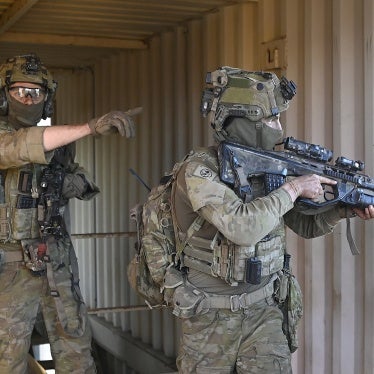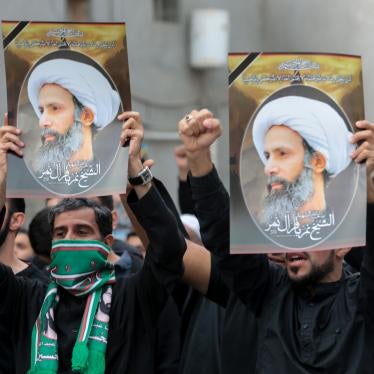October 27, 2023
The Fédération Internationale de Football Association (FIFA) Human Rights Policy states: “Guided by its human rights approach, FIFA embeds its commitment throughout the organisation and engages in an ongoing due diligence process to identify, address, evaluate and communicate the risks of involvement with adverse human rights impacts.” It also states that, “FIFA will constructively engage with relevant authorities and other stakeholders and make every effort to uphold its international human rights responsibilities.”
FIFA is an association registered in the Commercial Register in accordance with article 60 ff. of the Swiss Civil Code. Starting with the John Ruggie report “For The Game, For The World” in 2016, commissioned by FIFA under pressure as a result of corruption revelations and serious human rights abuses during preparations for the 2018 Russia World Cup and the awarding of the 2022 World Cup to Qatar, FIFA President Gianni Infantino pledged that “FIFA is fully committed to respecting human rights” and to “meet its responsibilities under the United Nations Guiding Principles on Business and Human Rights.”
In April 2016, FIFA adopted the United Nations Guiding Principles on Business and Human Rights and revised its own Statutes to include its responsibility to respect human rights in article 3 of the FIFA governing Statutes (non-discrimination was already long enshrined in article 4). Its Statutes state: “FIFA is committed to respecting all internationally recognized human rights and shall strive to promote the protection of these rights.” FIFA “bodies and officials must observe the Statutes, regulations, decisions and Code of Ethics of FIFA in their activities.”
In the 2015-2018 timeframe, FIFA took concrete steps to identify human rights abuses in its operations, and commit to remedying them. In September 2016, FIFA created and staffed a Human Rights Manager (now director) position to develop its human rights-related work, created the roles of Child Protection and Safeguarding Manager, and set up a system by which whistleblowers, athletes and human rights activists could directly report abuse to FIFA officials. In 2016, FIFA established an independent Human Rights Advisory Board to provide advice and report on FIFA’s implementation of its human rights commitments. FIFA did not renew the mandate for the advisory board in March 2021.
In June 2017, following adoption by the FIFA Council in May 2017, FIFA adopted and published its Human Rights Policy stating that human rights commitments are binding on all FIFA bodies and officials.
- BIDDING/HOSTING EVENTS
The introduction to FIFA’s Human Rights Policy (page 4), signed by President Gianni Infantino, expressly references FIFA’s responsibilities and the bidding and event hosting process:
FIFA recognises its obligation to uphold the inherent dignity and equal rights of everyone affected by its activities. This responsibility is enshrined in article 3 of the FIFA Statutes, according to which: FIFA is committed to respecting all internationally recognised human rights and shall strive to promote the protection of these rights.
… We are committed to embedding this policy across our activities through ongoing due-diligence processes, which includes anchoring respect for human rights in the bidding and hosting of our events and throughout our relationships with third parties.
FIFA announced that human rights requirements would be part of the consultation and bid-to-host process phases of the selection of the 2026 World Cup host. Bidding countries were required to submit a Human Rights Strategy in preparing for and hosting the tournament, as part of the process before selection.
Human Rights Watch made recommendations to FIFA on the bidding requirements, and was one of the 30 nongovernmental organizations that the “United Bid” of US/Canada/Mexico consulted as part of its human rights stakeholder consultation.
In November 2017, FIFA published a guide to the bidding process for the 2026 FIFA World Cup:
Following the approval of the bidding regulations for the selection of the host(s) of the 2026 FIFA World Cup™…and in line with the key principle of conducting a transparent bidding process, FIFA has prepared the following guide, which ….outlines the key elements of the reformed bidding process, the assessment mechanisms in place, recommendations on the protection of the process’ integrity, the timeline for the selection of the host(s), the specific requirements for hosting, a detailed explanation of the government guarantees, as well as the principles of sustainable event management and human rights protection.
- The 2026 Bidding Guide Infantino’s Foreword reads: “This evaluation process will generate reports, which will serve as the basis for a valuation by the FIFA Council. Our strategic body will study these reports and shortlist the bids that qualify to then be voted on by the FIFA Congress. And that is how the final decision on the host or hosts of the 2026 FIFA World Cup will be taken: in an open vote by our 211 member associations. Whoever ends up hosting the FIFA World Cup must prove that they know and have what it takes to deliver the tournament. Not only that, they must also formally commit to conducting their activities based on sustainable event management principles and to respecting international human rights and labour standards according to the United Nations’ Guiding Principles.”
- In 2018, FIFA set up a stakeholder consultation and bidding process for the 2026 World Cup, which Human Rights Watch and a broad coalition of stakeholders (now known as “Dignity 2026”) were part of.
- Here are summaries of the human rights strategies for 2026 bidders in their “Bid Books.”
“Bidding requirements for 2026 include due diligence about existing human rights conditions and a requirement for the bidding countries to submit a human rights strategy in preparing for and hosting the 48-team tournament,” Human Rights Watch wrote at the time.
The two World Cup finalists, the United Bid of the US/Canada/Mexico and Morocco—both included independent human rights assessments of their bid, and also their own Human Rights Strategy. The United Bid succeeded and is governed by that 90-page Human Rights Strategy, including regular stakeholder consultations with FIFA today.
- REMEDY
As set out in the Ruggie Report, FIFA also has human rights responsibilities to remedy abuses to which it has contributed, under the United Nations Guiding Principles on Business and Human Rights, and as recognized by FIFA’s own policies.
Citations from Key Elements of FIFA’s Human Rights Policy
- Article 3: “In line with the UNGPs [UN Guiding Principles on Business and Human Rights], FIFA will exercise its leverage, and seek to increase said leverage where necessary, in connection with adverse human rights impacts arising through its business relationships. To this end, FIFA will explore and make use of all options available to it within the said relationships.”
- Article 4: “FIFA will strive to go beyond its responsibility to respect human rights, as enshrined in the UNGPs, by taking measures to promote the protection of human rights and positively contribute to their enjoyment, especially where it is able to apply effective leverage to help increase said enjoyment or where this relates to strengthening human rights in or through football.”
- Article 11: “FIFA helps protect those who advocate respect for human rights associated with its activities and is committed to contributing to providing remedy where individuals have been adversely affected by activities associated with FIFA.”
- Article 11: “FIFA will respect and not interfere with the work of both human rights defenders who voice concerns about adverse human rights impacts relating to FIFA and media representatives covering FIFA’s events and activities…. Where the freedoms of human rights defenders and media representatives are at risk, FIFA will take adequate measures for their protection, including by using its leverage with the relevant authorities.”
- Article 5: “Discrimination is an issue in the world of football both on and off the pitch. FIFA strives to create a discrimination-free environment within its organisation and throughout all of its activities.… Article 4 of the FIFA Statutes prohibits discrimination of any kind against a country, private person or group of people on account of race, skin colour, ethnic, national or social origin, gender, disability, language, religion, political opinion or any other opinion, wealth, birth or any other status, sexual orientation or any other reason.”
In November 2017, Federico Addiechi, FIFA’s then-head of sustainability and diversity, told the New York Times: “If there are any cases of abuse, or even possibility of human rights defenders or journalists being forced into a difficult corner, then according to our statutes and human rights policy FIFA will intervene.”
Finally, FIFA is an international sports federation under the International Olympic Committee, and the IOC has adopted the UN Guiding Principles and mandated a “Strategic Framework on Human Rights” since September 2022.
- DUE DILIGENCE
FIFA’s Human Rights Policy states: “Guided by its human rights approach, FIFA embeds its commitment throughout the organisation and engages in an ongoing due diligence process to identify, address, evaluate and communicate the risks of involvement with adverse human rights impacts.” It also states that, “FIFA will constructively engage with relevant authorities and other stakeholders and make every effort to uphold its international human rights responsibilities.”
Human Rights Watch has long called on FIFA to apply clear, objective human rights criteria to all states for hosting both the men’s and women’s World Cup and other tournaments and for any major commercial sponsorships, including labor protections, press freedom, non-discrimination and inclusion.
Given past corruption and serious human rights abuses, including discrimination against LGBT people and the unexplained deaths of thousands of migrant workers who built the infrastructure for the 2022 World Cup, Human Rights Watch has requested the following from FIFA for the 2030 and 2034 World Cup bids:
- a transparent bidding process,
- stakeholder consultations on that process,
- stakeholder consultations with athletes and human rights defenders from the relevant bidding country,
- human rights and labor standards to be integrated in any hosting agreements, and
- effective, independent and public human rights monitoring, including public reporting during the bidding and during the preparation for the World Cup. Remediation and transparency needs to be implemented in all future tournaments and operations.






